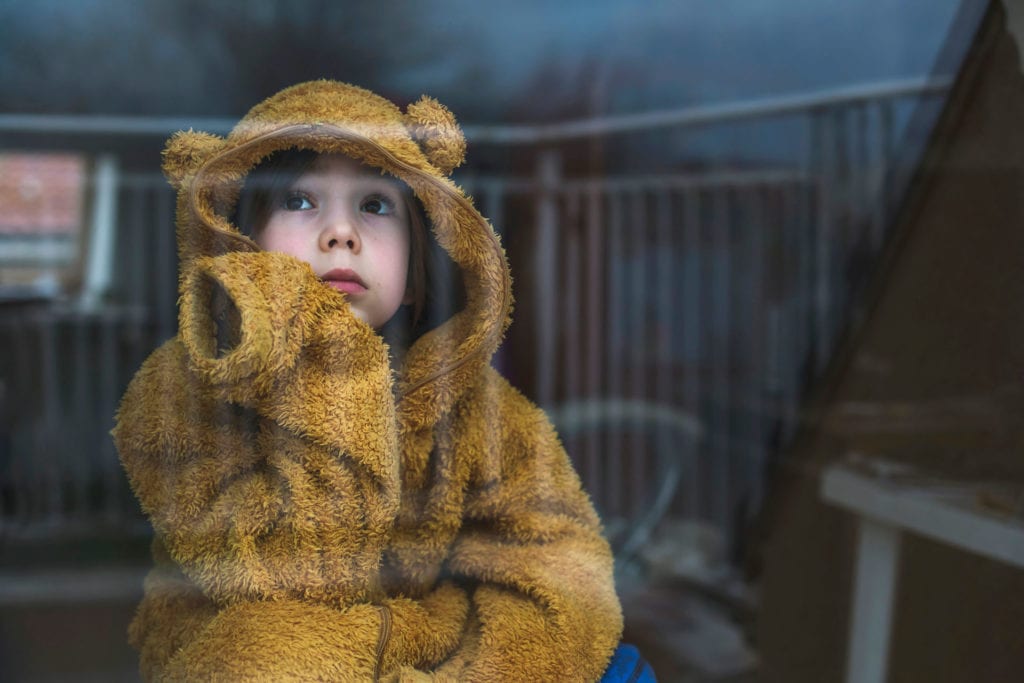
Our children’s lives have been in upheaval for more than six months now. The rushed remote learning from the spring shutdowns gave way to canceled summer trips and sports seasons, shuttered businesses, and a “back to school” that is anything but normal. The result? Disappointment, sadness, and depression levels have skyrocketed in America’s youth.
While sadness and stress are both typical reactions to the limits the pandemic has put on our children’s social lives and daily routines, it’s important to offer our children the support they need to navigate these trying times. Here’s what you can do.
Support Children’s Mental Health During the Pandemic

- Find Ways to Connect Everyday.
In fact, the #1 recommendation I have for parents who are concerned for their children right now is to find time to connect. Connection is protection from stress. When we are home with our children, there are opportunities during the day to connect by playing a game, baking, shooting hoops, or any activity that allows you to enjoy time with your child.
- Practice Empathy.
Parents often want to jump in and fix our children’s problems. But processing is actually a very healthy thing. We can tell our kids, “I see that you are sad.” Acknowledging that their sadness makes sense and providing empathy is extremely important to help them process what they are going through.
- Manage Your Own Stress.
There’s a science behind stress. As humans, we have mirror neurons that instantly detect and try to match the emotions of those around us within milliseconds. That’s right, stress can be contagious. So it comes as no surprise that when parents are stressed, it trickles down to our kids. And right now, stress is an epidemic.According to the American Psychological Association, 71% of parents have cited managing remote learning for their children as a significant cause of stress along with the economy and work. Find time for self-care and stress relief for yourself during this time.

- Model Calm.
Even if you are screaming inside, try to work on developing positive coping skills. And just as with stress, calm can also be contagious. The process is called “co-regulation.” When you bring calm to a stressful situation, your child calms down too. Try this next time you’re stressed. Say your feelings aloud, and narrate what you are going to do.“I am feeling frustrated. I am going to step outside and take a few breaths to calm down. Then I will be able to think clearly and we can figure out a way to solve the problem together.”
- Watch for Warning Signs.
I’ve learned over the years that parents have excellent intuition when it comes to their kids. Keep an eye out for possible warning signs including behavioral and physical changes that may indicate that the situation calls for an evaluation with a trained professional. Behavioral changes are when your child is not acting like themselves or if their behavior is not consistent with how they acted before the pandemic.Physical changes may include not eating enough, sleeping too much, or changes in energy levels. Last, make sure to take into account what the situation is that your child is reacting to. If your child just figured out that hockey season is cancelled and they are upset, that is typical. But if the behavior is going on everyday for several weeks, it could be a red flag.
As parents we want to fix everything for our children, and while it’s a natural reaction, it just isn’t possible or even the best solution. You can’t smooth out the rocky ocean waves of COVID for your child, but you can help them learn to ride out the waves and weather the storm together. The storm will pass and your child will emerge with a strengthened resilience.
Related Stories
10 Scientifically Proven Ways to Raise a Happy Child
Common Reasons for Teenage Depression
Quarantine Stress Is Killing You — Here’s How to Handle It
